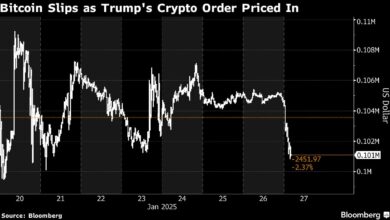Banks Have Green Light to Hold Crypto After SEC Axes Rule

The Securities and Exchange Commission has eliminated a controversial accounting rule that required firms to record crypto assets held for customers as liabilities on their balance sheets, potentially opening the door for more traditional banks to enter the crypto custody business.
The rescission of Staff Accounting Bulletin 121 marks a turning point that could reshape how financial institutions approach crypto custody, potentially leading to consolidation in the industry and expanding institutional crypto services beyond just Bitcoin and Ethereum, according to industry experts.
“Several large custodians such as USBank and BNY already provide fund administration and cash custody for crypto ETFs. BNY also has the technical ability to custody Bitcoin and Ethereum,” Steven McClurg, CEO and founder of Canary Capital, told etf.com.
The removal of SAB 121 would enable traditional custody providers to expand their crypto ETF services globally, McClurg explained, adding that he expects industry consolidation with crypto-native firms like Gemini or Anchorage potentially being acquired by banks.
However, McClurg noted that the transition won’t happen overnight. Most banks will initially limit their custody services to Bitcoin and Ethereum, meaning the next wave of potential crypto ETFs—including those for XRP, Litecoin, and HBAR—likely won’t have bank custody support at launch.
While some ETF issuers might migrate their existing products to bank custody services for convenience, McClurg explained that “it will still take years for most banks to become comfortable with their own technological systems, but M&A would likely speed that up.”
The regulatory change, outlined in Staff Accounting Bulletin 122, requires companies to assess crypto-safeguarding obligations under broader accounting standards, such as U.S. Generally Accepted Accounting Principles and International Financial Reporting Standards guidelines.
The new guidance takes effect for fiscal years beginning after Dec. 15, 2024, though companies can adopt the changes earlier. The SEC emphasized that firms must continue providing clear disclosures about their crypto custody obligations under existing requirements.
The change follows a series of congressional attempts to address the accounting requirement. A bipartisan bill to repeal SAB 121 gained initial support in both chambers last year but was vetoed by then-President Joe Biden.
Source link



